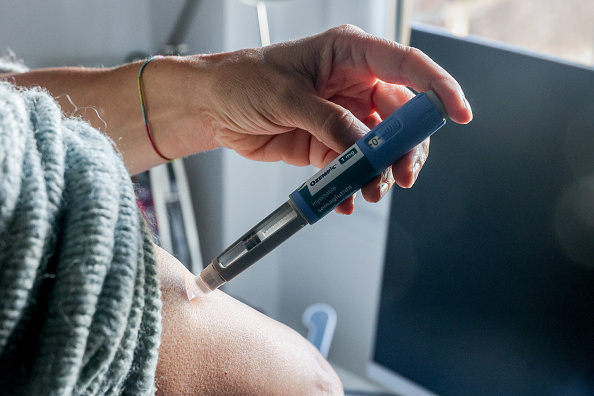Friday Apr.22, 2022
🎹 Steinway’s IP-ian-O
Nothing like that new piano smell (Isabel Infantes/AFP via Getty Images)
Hey Snackers,
The typo of a lifetime: a woman won $10M after pressing the wrong button on a lottery-ticket machine when a stranger bumped into her in an LA supermarket. She never got an apology, not that she needs it now.
Stocks sank, reversing earlier gains, as Fed Chair Powell signaled that a bigger rate hike is “on the table” for next month’s meeting.
Ivories
Steinway files for an IPO to bring its pricey pianos to China’s luxury listeners
Enter the piano-verse… The maker of Steinway pianos is going from the concert stage to the stock exchange. Last week Steinway Musical Instruments filed to go public on the NYSE (the exact date isn’t set). Its IPO comes as luxury spending booms, particularly in China.
- Old keys: Steinways sell for between $60K and $2.4M. Last year the 169-year-old brand scored nearly $60M in profits, a 14% jump from 2020.
- New tricks: Steinway’s self-playing Spirio accounted for a third of its piano sales last year. Two out of three Spirio owners can’t even play piano, but they can stream live concerts or classic Duke Ellington shows at cocktail parties.
Powerhouse performers, meet luxury listeners… Steinway’s come far from its NYC roots. The company built its brand on partnerships with star pianists (Billy Joel) and iconic venues (Sydney Opera House): 97% of pianists use Steinways in concert. Steinway ships pianos anywhere on Earth for its nearly 2K elite “Steinway Artists” (it even sent one to an iceberg). But to expand, Steinway is focusing on homebuyers. Increasingly they’re in China:
- More music: Today China has 7X as many pianists as the US. That trend’s accelerating: 30M kids in China study piano, compared to fewer than 10M in the entire rest of the world.
- Bigger spending: Luxury spending in China’s surging: consumers worth $30M+ — Steinway’s sweet spot — have doubled in the past five years.
It’s good to sell pianos, but better to sell luxury… Steinway calls itself a luxury brand first and a piano brand second. The reason: the luxe goods market is 135X as big as the musical-instrument market, and it's growing 3X as fast. Steinway mentioned China 156 times in its IPO filing: by catering to China’s music-loving upper class, the piano powerhouse hopes to grow its customer base of big-spending piano lovers.
Caged
Billionaire Carl Icahn takes on McDonald’s animal-welfare practices, while calling out Wall Street’s ESG “hypocrisy”
Just in time for Earth Day… Carl Icahn's latest beef differs from his usual shareholder-focused strategy of corporate raiding. Yesterday the billionaire investor wrote a passionate letter to McDonald’s investors accusing the fast-food giant of animal cruelty. Icahn has a small ($50K) stake in the Golden Arches, but it hasn’t kept him from waging a public proxy battle over the company’s pork-supply-chain practices.
- The issue: A decade ago, McDonald’s vowed to phase out suppliers that use controversial gestation crates (think: supertight metal stalls for pregnant pigs). Update: still hasn’t happened.
- Icahn’s answer: Add two of his hand-picked directors to McDonald’s board to ensure the pigs are treated better.
- Mickey D’s response: Icahn’s demands are “unfeasible” and would create a “financial burden” for its customers (read: more expensive bacon).
Sustainability hypocrisy… ESG (environmental, social, and governance) investing is one of the hottest trends on Wall Street. Last year, investors poured a record $120B into sustainable assets — 2X more than in 2020. While arguing animal welfare should be a pillar of ESG, Icahn’s also calling out corporate green promises as hollow marketing ploys. And he says the big asset managers (like: BlackRock) reap billions without holding companies accountable.
A small stake can make a big difference… Activist investors are using their influence to force corporations to make sustainable changes. It’s worked before: activist fund Engine No. 1 won three seats on Exxon's board last year with just a 0.02% stake after it convinced shareholders Exxon needed to get serious about climate change. McDonald's shareholders will get their chance to weigh in on Icahn’s cause at its annual meeting next month.
What else we’re Snackin’
- Secured: Looks like he’s really going for it: Elon says he’s lined up $46.5B in financing to buy Twitter. Twitter execs popped a “poison pill” to stop the takeover, so he might take his offer directly to shareholders.
- Change: The Obamas are leaving Spotify after the streamer didn’t offer them a new podcast deal. The former first couple is reportedly shopping for a new deal with a wider (aka non-exclusive) reach.
- Primed: For a fee, Amazon’s letting other online retailers offer its Prime delivery service directly on their sites. The strategy shift is a direct response to Shopify’s explosive growth.
- Minus: CNN+ is shutting down, just a month after its lavish launch. It’s one of the biggest failures for a new media venture in recent history, and comes after CNN pitched the streamer as its digital future.
- Vanish: Shares of Snap tumbled, then recovered, after the Snapchat parent missed profit and earnings expectations, citing a “challenging” quarter. Silver lining: Snap saw 18% annual growth in daily active users.
Friday
- Earth Day
- Earnings expected from Verizon, American Express, and Honeywell
Authors of this Snacks own: shares of Amazon, Snap, Twitter, Spotify, and Exxon
ID: 2164562
.png)


.png)